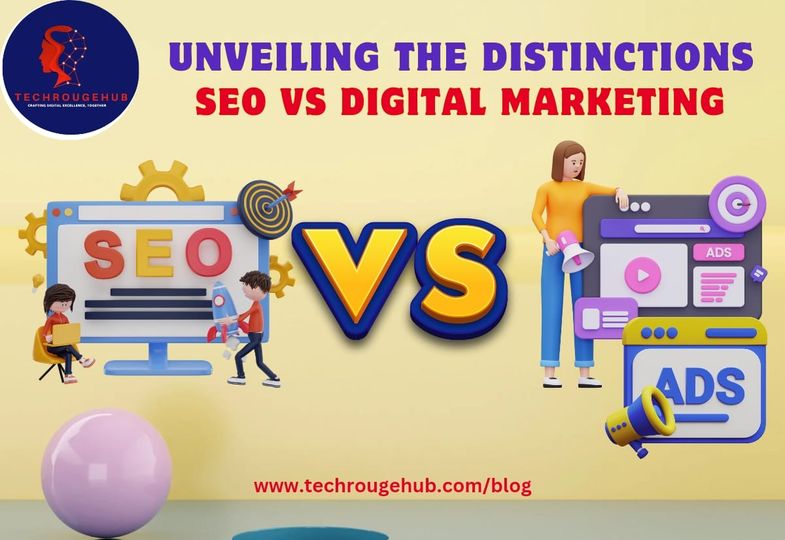In the ever-evolving landscape of online presence and brand promotion, understanding the nuances between SEO (Search Engine Optimization) and digital marketing is pivotal for a comprehensive marketing strategy.
SEO: Unraveling the Web’s Ranking Mysteries
SEO is the art and science of enhancing a website’s visibility in search engine results pages (SERPs). It operates on the premise of organic growth, aiming to improve a website’s ranking without resorting to paid advertising. Here are key aspects that define SEO:
Keyword Optimization: SEO experts meticulously select and optimize keywords to align with the target audience’s search queries. This involves integrating relevant keywords into website content, meta tags, and other elements.
Content Quality: High-quality, relevant content is the backbone of SEO. Search engines prioritize content that provides value to users, and SEO strives to create content that is not only search-engine-friendly but also appeals to human readers.
Technical Optimization: SEO involves technical aspects like website structure, speed, mobile responsiveness, and crawlability. Addressing these factors ensures that search engines can easily navigate and index a site.
Backlink Building: Acquiring quality backlinks from reputable websites is a crucial SEO strategy. Backlinks serve as a vote of confidence, signaling to search engines that a site is trustworthy and authoritative.
Digital Marketing: The Holistic Approach
Digital marketing encompasses a broader spectrum of online promotional activities, of which SEO is just one facet. Here are key components of digital marketing:
Social Media Marketing: Leveraging platforms like Facebook, Twitter, and Instagram to connect with the audience, build brand awareness, and engage in direct communication.
Email Marketing: Targeted communication through email campaigns to nurture leads, retain customers, and promote products or services.
Content Marketing: Creating and distributing valuable content to attract, engage, and convert the target audience. This can include blog posts, videos, infographics, and more.
Analytics and Data Analysis: Utilizing tools to gather insights into user behavior, campaign performance, and overall digital presence, enabling data-driven decision-making.
Conclusion: Striking the Balance for Optimal Results
While SEO and digital marketing are distinct, they are not mutually exclusive. The most successful online strategies often integrate both, recognizing the unique strengths each brings to the table. SEO lays the foundation for organic growth, while digital marketing channels like social media and paid advertising amplify reach and engagement.
In a digital landscape where visibility is key, mastering the interplay between SEO and digital marketing is a dynamic journey for businesses aiming to thrive online. The symbiotic relationship between these two pillars is the key to unlocking the full potential of a comprehensive and effective online marketing strategy.

